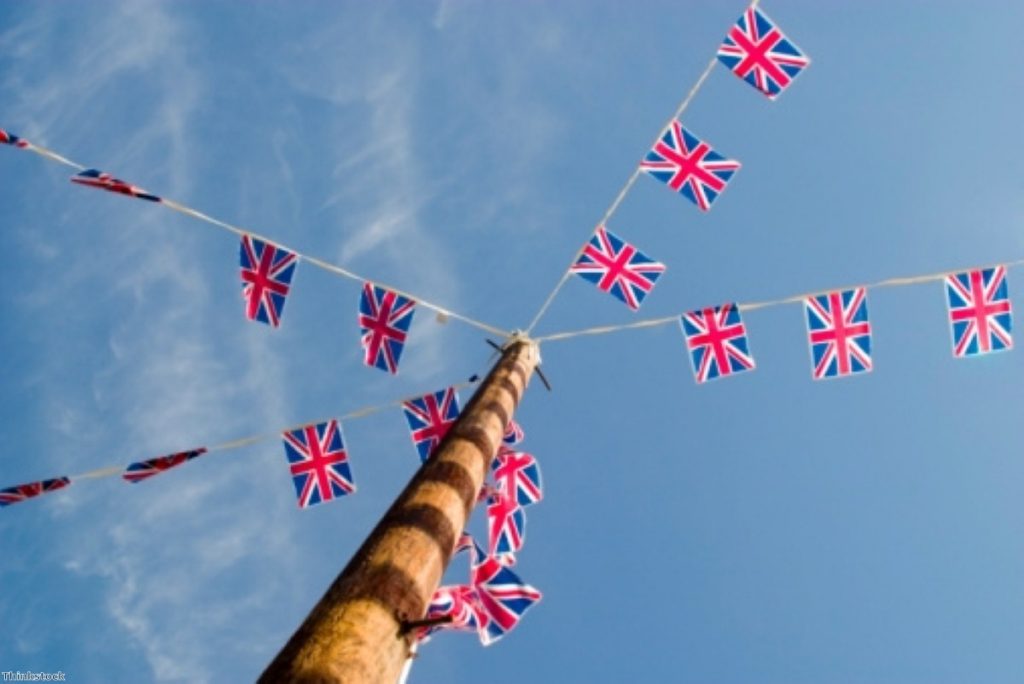Why are young Scottish people more comfortable being British?
Something is happening to the youth of Scotland. "This young generation seems to not care so much about the concept of borders," Jan Eichhorn, chancellor's fellow in social policy at the University of Edinburgh, says. "Borders don't make sense to them."
This is a generation which grew up with freedom of movement in the EU, in an age of cheap air travel and the internet. And you can see the effect of this in their views on the Scottish independence referendum.
Age plays a major but underreported role in the independence debate. Sixteen-to-eighteen-year-olds, who are voting for the first time, are more wary of Scottish independence than their elders. But 18-24-year-olds are more supportive. Those over-65 are fiercly opposed. "The only group that's really consistent is the 65-plus," Eichhorn says. "They are by far the least likely to vote for independence."
The lack of support for independence among children surprised researchers. Sixty per cent of 14-17-year olds said they would vote 'No' when asked in a survey last year, compared to just 21% who said they would vote 'Yes'. The gap has closed somewhat since then, but the trend is surprisingly strong.


Eichhorn and his colleagues' research found that younger Scots have a much more multi-layered sense of their own identity. They do not reject their Scottish identity, but they are much more likely to also see themselves as British and as European. They did not see why one would exclude the others. To them, identity is multiple and international.
Those aged 14-17 are much less likely to have a strong sense of Scottish identity than those aged 18-24. Just 12% of 14-17-year-olds described themselves as 'Scottish, not British', compared to 35% of 18-24-year-olds and 23% of adults as a whole. Forty-five per cent say they are equally Scottish and British, far above the 22% of 18-24-year-olds or 30% of all adults.
"They're not feeling less Scottish or even British per se, but they are much happier to have multiple identities," Eichhorn says. "Scottish identity hasn't gone down but the number that feel equally Scottish and British is at an all-time high. It doesn't mean they're less Scottish but they don't see a contradiction."
Younger people were also much more likely to be supportive of the EU. A tiny proportion of 16-18-year-olds want Scotland out the EU and only 22% want its power reduced. For adults, the figure stands at over a half. Most young people, on the other hand, are perfectly happy with the status quo.
"Young people aren't losing identity," Eichhorn concludes. "Very few pick the transnational option. They feel Scottish. Nearly all feel British as well. But they're also identifying with the European idea, like the freedom of movement aspect. They've grown up with that – that they can travel cheaply and easily."
The polling on young people is highly revealing. They are no less interested in politics than the rest of the population, but they are much less likely to identify with a political party. Fifty-seven per cent say they do not feel close to any political party at all, compared to 42% of adults.
As with adults, expectations of how an independent Scotland would do economically play a key role in whether they support the idea. The only difference is that young people's worries are about tuition fees rather than pensions.
Of all the variables, economic belief is easily the most reliable indicator of how someone will vote. If you ask people whether Scotland should run all its own affairs, the number agreeing is far higher than the number planning to vote 'Yes'. Why? Because many of those who agree don't believe Scotland would be successful going it alone.
"Regardless of what your ideas are – even if you support independence – you won't act on it unless you think it's good for the economy," Eichhorn explains. "Nearly everyone who thinks it will get better will vote 'Yes', those who think it will get worse will vote 'No'." This is as true of young people as it is of their parents and grandparents.
They will only constitute three per cent of the electorate when Scotland goes to the polls next month, but the views of young people provide a fascinating glimpse into the future politics of Britain. They are similar to their elders. They vote on economics, they worry about what's good for them and they are about as interested – or uninterested – in politics as the older generations.
But they are also much more comfortable embracing multiple identities. They are Scottish. But they are British and European too.









